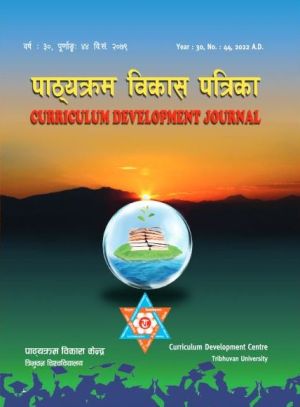Evaluating Refresher Training on Masters’ Course of Rural Development Subject
DOI:
https://doi.org/10.3126/cdj.v30i44.54971Keywords:
Capacity development, Refresher course training, Masters of Arts, Rural Development, Course structure/functionAbstract
The refresher course training is pivotal for strengthening teachers’ commitment, sharing knowledge, increasing self-confidence, and keeping them up to date on current teaching learning activities. With this consideration, the aim of this paper is to assess the present syllabus of MA in Rural Development and evaluate the refresher course training program based on four levels of evaluation such as reaction, learning, behavior and result of the program. For that purpose, we purposively selected 25 participants who were associated in 21 campuses including Central Department. We applied survey based evaluation research method and Kirkpatrick four levels (reaction, learning, behavior and result) training evaluation model for assessing and examining outcomes of trainings. It reveals that the training program has evolved into an academic platform for students to share their personal experiences with course structure, teaching learning practices, and student performance. It has increased the capacity of the subject coordinators/teacher in terms of networking, course structure/function, performance assessment and constructivist pedagogy. Besides, they have developed a good network amongst the participants and resource persons. The major outputs of the program are SWOC analysis of course structure, 3Rs (Revisit, Revision and Restructure) course concept as well as list of lesson learn and new possible papers (course of study). Therefore, this short term training might brought long term impact improving course structure/function including pedagogical practices. Finally, course function scale, conceptual learning scale, Constructivist Pedagogy/learning theory scale, level four result/outcomes scale and characteristics of the participants are interlinked and associated significantly.
Downloads
Downloads
Published
How to Cite
Issue
Section
License
© Curriculum Development Centre, Tribhuvan University

